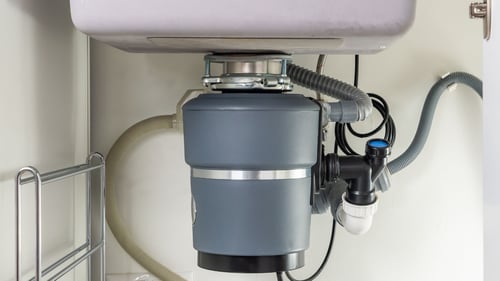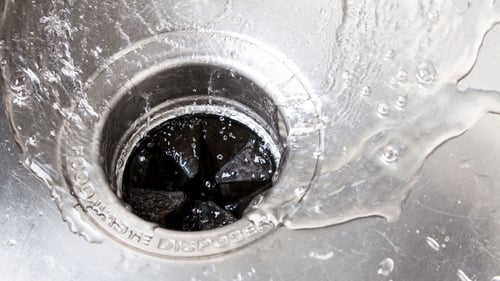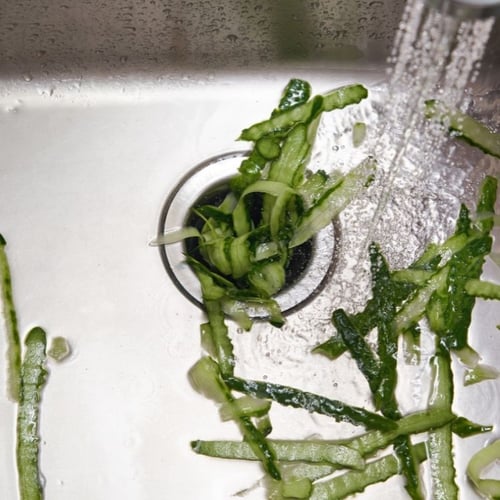A well-functioning garbage disposal is a kitchen essential, making clean-up a breeze. However, when unusual sounds emanate from this trusty appliance, it's time to pay attention. In this comprehensive guide, we'll delve into the intricacies of garbage disposal noises, helping you decipher the symphony and providing practical solutions for a quieter, more efficient kitchen.

Deciphering the Sounds
Unraveling the Garbage Disposal Symphony
The first step in addressing garbage disposal issues is understanding the sounds it makes. Imagine it as a symphony, with each noise telling a different story.
The low hum may indicate a stuck impeller or a foreign object obstructing the blades. On the other hand, grinding noises might suggest worn-out blades or debris causing friction. Clanking and banging sounds often stem from loose parts or foreign objects in the disposal unit, while a persistent whirring sound may point to motor issues.
Clicking or thumping sounds can indicate loose or misaligned components and rattling sounds may signify loose hardware or blades. If you hear a high-pitched screeching, it could be a problem with the flywheel or motor. Gurgling sounds may hint at drainage issues, and foreign objects or worn-out parts might cause metallic tapping.
Surprisingly, sometimes, the most concerning sound is silence. If your garbage disposal is eerily quiet, it could be a cause for concern, signaling a malfunction. We'll explore each of these sounds in detail to help you diagnose and address the specific issue.

Troubleshooting the Top 10 Sounds
A Closer Look at Each Noise from your garbage disposal
1. Humming Sounds:
A common complaint is the persistent hum when you switch on the disposal. This often indicates a stuck impeller or a foreign object obstructing the blades. Before panicking, turn off the disposal, disconnect the power, and use a wrench to rotate the impeller manually. If this doesn't work, inspect for foreign objects that might be causing the obstruction.
2. Grinding Noises:
The distinct sound of grinding can be unnerving, suggesting worn-out blades or debris causing friction. To troubleshoot, turn off the disposal and carefully inspect the blades for any visible damage. If blades appear damaged, they might need replacement. Clearing debris from the disposal can often resolve the issue.
3. Clanking and Banging:
Clanking and banging sounds are often attributed to loose parts or foreign objects within the disposal unit. Begin by turning off the disposal and checking for loose or misplaced components. If foreign objects are causing the noise, carefully remove them, ensuring the power is disconnected.
4. Whirring Sounds:
A persistent whirring sound could indicate motor issues. To troubleshoot, turn off the disposal and manually rotate the blades. If they move freely, the issue may lie with the motor. Check for any visible signs of damage or wear on the motor components.
5. Clicking or Thumping:
Clicking or thumping sounds may signal loose or misaligned components. Turn off the disposal and inspect for any visibly loose or misaligned parts. Tighten loose components or realign as necessary.
6. Rattling Sounds:
Rattling often occurs due to loose hardware or blades. Turn off the disposal and check for any visibly loose components. If blades appear loose, tighten them securely. If the rattling persists, inspect for worn-out or damaged parts that may need replacement.
7. High-Pitched Screeching:
A high-pitched screeching sound can be unsettling. Turn off the disposal and inspect the flywheel and motor components for any signs of wear or damage. Lubricating the components may alleviate the screeching.
8. Gurgling Sounds:
Gurgling sounds may indicate drainage issues. Check for any clogs or obstructions in the drainage pipe. Running hot water through the disposal for a few minutes can help clear minor blockages.
9. Metallic Tapping:
Metallic tapping sounds can result from foreign objects or worn-out parts. Turn off the disposal and carefully inspect for any foreign objects causing the tapping. If parts appear worn, they may require replacement.
10. Silence:
Complete silence when you switch on the disposal is cause for concern. Ensure the unit receives power and check for any visible signs of damage or wear on the motor components. If the disposal remains silent, professional assistance may be necessary.

DIY Fixes and Maintenance for Your Garbage Disposal
Tuning Up Your Garbage Disposal
Now that you've identified the source of the noise, it's time to address the issue with some DIY fixes and regular maintenance:
-Blade Inspection and Replacement: Regularly inspect blades for wear and tear and replace them if they show signs of damage.
- Foreign Object Removal: Carefully remove any foreign objects causing obstructions. Remember to disconnect the power before reaching in the disposal.
- Lubrication: Apply lubricant to motor components to reduce friction and minimize noise.
- Alignment and Tightening: Ensure all components are properly aligned and tightened to prevent unnecessary movement and noise.
Can I Sharpen Garbage Disposal Blades with Ice Cubes?
When to Call in a Professional Plumber for Your Garbage Disposal
Knowing Your Limits
While many issues can be addressed with DIY fixes, there are situations where professional assistance is crucial:
- Motor Replacement: If the motor is malfunctioning, it's best to consult a professional for a thorough inspection and potential replacement.
-Electrical Issues: If you suspect electrical problems, such as faulty wiring, seek professional assistance to avoid safety hazards.
- Persistent Issues: If DIY fixes do not resolve the problem or if the garbage disposal continues to make unusual noises, it's time to call in a professional plumber.
Understanding and addressing garbage disposal sounds is essential for maintaining a peaceful and efficient kitchen. You can ensure your garbage disposal operates smoothly by deciphering the symphony of noises, troubleshooting specific sounds, and implementing DIY fixes and maintenance.
Regular inspections and proactive maintenance are key to preventing future issues. While many problems can be resolved with DIY solutions, knowing when to seek professional assistance is crucial for more complex issues. With this comprehensive guide, you're well-equipped to navigate the soundscape of your garbage disposal and enjoy a quieter, more functional kitchen.


